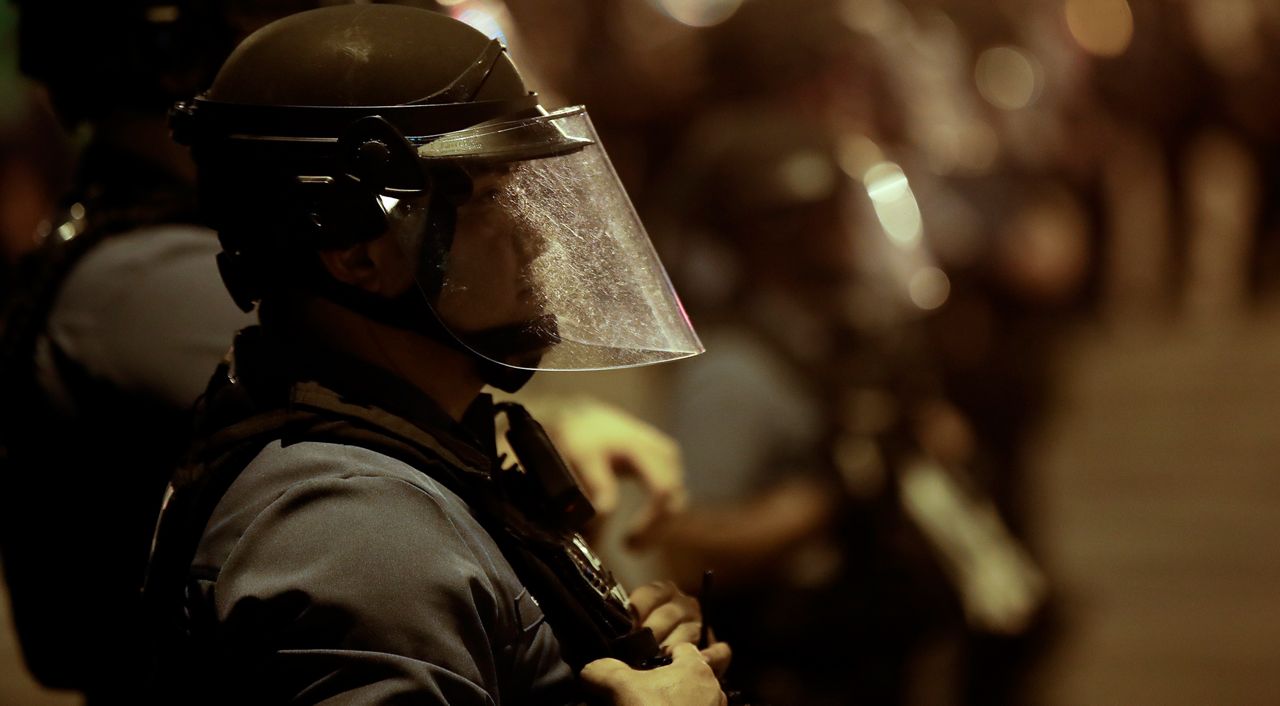OHIO — Ohio had the second-most active anti-government extremism groups last year, according to a new report from the Southern Poverty Law Center (SPLC).
Out of the 566 identified by the SPLC's Intelligence Project across all 50 states, California had the most with 51, Ohio had 31 and Texas came in third with 29. The SPLC defines anti-government extremism as a group of people with apathy toward the government, and they usually define themselves as going against the "New World Order." SPLC states although they do not normally condone violence, some do, and they partake in "groundless conspiracy theorizing, or advocate or adhere to extreme antigovernment doctrines."
The number of groups is down from 576 in 2019, but the SPLC stated that doesn't mean groups are any less active. In the report, the SPLC identified three key reasons as to why antigovernment extremists were more active this year than most:
- The COVID-19 Pandemic
- Black Lives Matter Movement
- 2020 Presidential Election
Although the pandemic largely curtailed major events for groups, the announcement of stay-at-home orders and mask mandates is what ignited movements, according to the SPLC.
"Many groups have denied the virus’s existence or severity, reacting by spreading baseless conspiracy theories, claiming government health guidelines were tyrannical and calling lawmakers who implemented them tyrants," researchers wrote in the report.
Earlier on in the pandemic, authorities arrested members of two anti-government members on charges of kidnapping and bombing, including a Cleveland man. Christian Stanley Ferguson was arrested in May 2020 after plotting to kidnap law enforcement officers in response to COVID-19 orders. He planned to ambush them after faking a distress call.
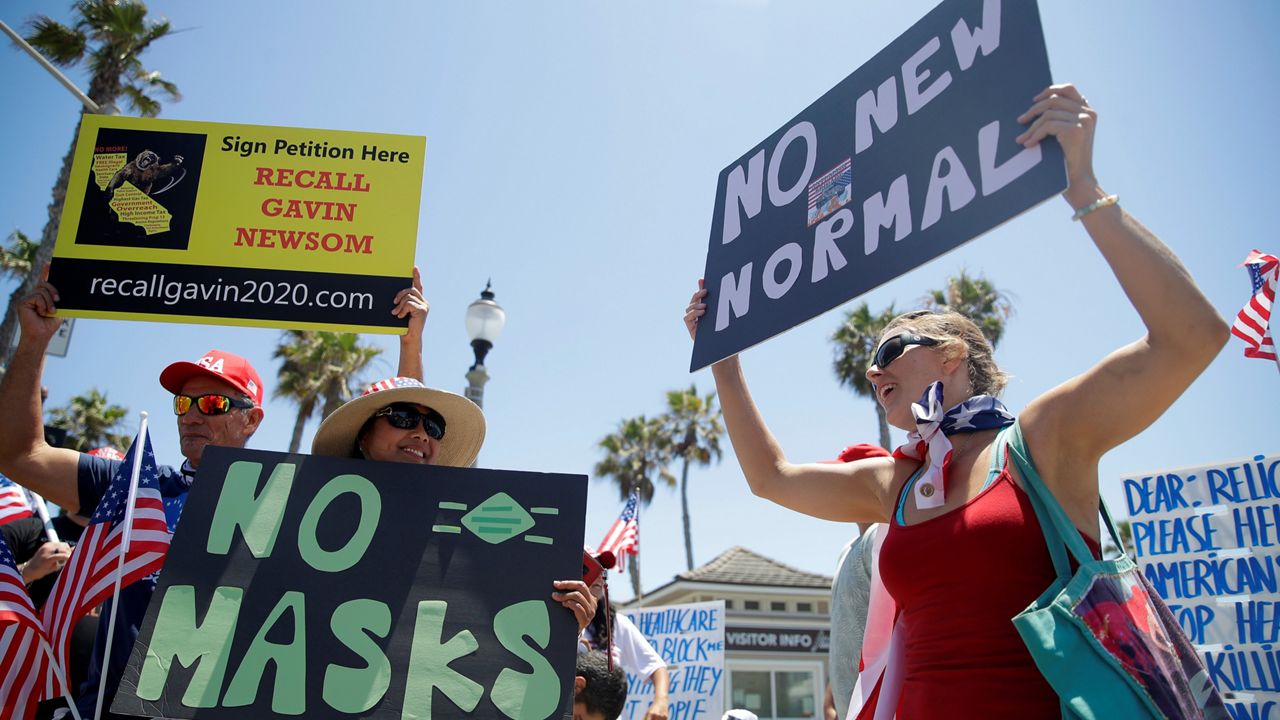
One of the key groups to help fuel the anti-government movement was the Oath Keepers, which had members also take part in the Jan. 6 Capitol riots. In May, Oath Keepers members held rallies in both Texas and New York, defying coronavirus restrictions.
Michigan had been at the center of most of the rebuttal to the orders as groups plotted to kidnap Gov. Gretchen Whitmer. On April 17, when President Donald Trump tweeted the words "LIBERATE MICHIGAN," armed protesters took to the Michigan Statehouse on April 30. Groups involved were Stop the Steal, American Patriot Council — whose leader Ryan Kelley hosted the protest — and the Michigan Liberty Militia, according to the SPLC.
Other movements like Black Lives Matter, which occurred during the pandemic last year, also ignited anti-government militias.
The death of George Floyd sparked protests across the country and the globe as tens of thousands of people marched in solidarity asking for equality between police and Black Americans.
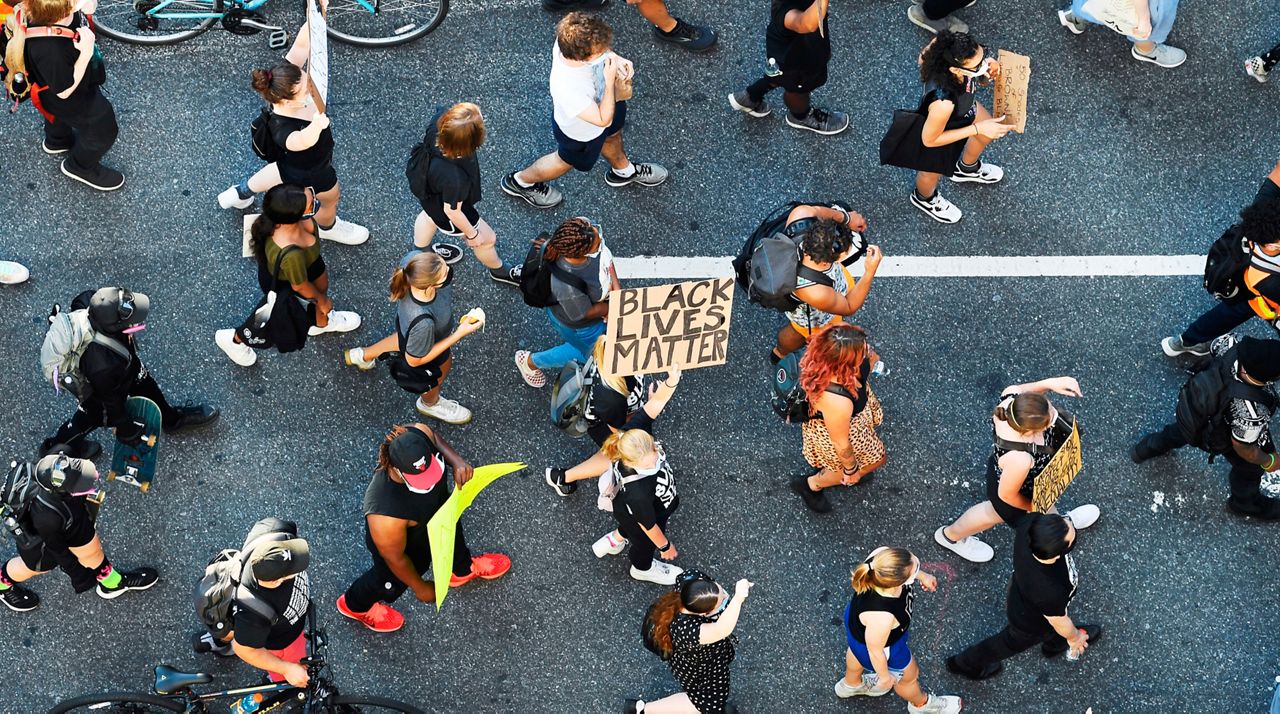
But an example of a clash between anti-government and Black Lives Matter protesters is the small town of Bethel, Ohio in June,
A small group of Black Lives Matter demonstrators showed up downtown to show solidarity with the Black community in Bethel. But soon, the small group was overwhelmed as hundreds of counter-protesters showed up, some armed with bats and guns.
It turned into a two-hour clash, and at the time, the Bethel Police Department was investigating 10 incidents that occurred that day. Videos circulated on Twitter from the protest, including one man wearing a Confederate flag bandana punching a Black Lives Matter protester. A police officer witnessed it, but didn't act, which drew criticism from Sen. Sherrod Brown.
A #BlackLivesMatter protestor in #Bethel #Ohio got sucker punched DIRECTLY IN FRONT OF A COP & nothing was done by the officer to protect and serve the protestor.
— Josh Martinez (@YoJoshMartinez) June 15, 2020
🤦🏻♂️ pic.twitter.com/BPeKhOjxb3
“These officers’ inaction is shameful,” Brown tweeted. “This is why we need the Justice in Policing Act – to hold police accountable." The George Floyd Justice in Policing Act of 2020 was introduced in June and has passed the House, but hasn't passed the Senate. The act aims to increase accountability for law enforcement misconduct and transparency inside police departments.
Bethel wasn't the only example of protesters clashing, as it occurred across the rest of the state and the nation. In Cleveland on May 30, peaceful demonstrators marched through the streets to protest police brutality. But the peaceful protest soon turned chaotic, as counter-protesters engaged and ended up setting fire to nearby cars, the Cleveland Justice Center and others attempted to break into Progressive Field.
The FBI arrested two men from Pennsylvania, who were accused and federally indicted for bring fire starters to the protest. Brandon Michael Althof Long, 23, and Devon Bryce Poland, 22, were charged with one count of conspiracy to riot and cause civil disorder, conspiracy to use fire to commit a felony, interstate travel to riot and transporting any firearm in furtherance of civil disorder. Police also arrested 99 others for disorderly conduct.
Although the summer was one for protesting police brutality, that soon evolved as the nation got closer to the November 2020 presidential election.
For months, former President Donald Trump claimed mail-in ballots were "fraudulent," and encouraged his supports not to partake in the 2020 election.
At one point, he even encouraged supporters to vote twice to test mail-in voting effectiveness, which is illegal. Trump began to claim mail-in voting would encourage voter fraud back in April.
"Mail ballots are a very dangerous thing for this country, because they're cheaters," Trump said during a White House briefing. "They're fraudulent in many cases."
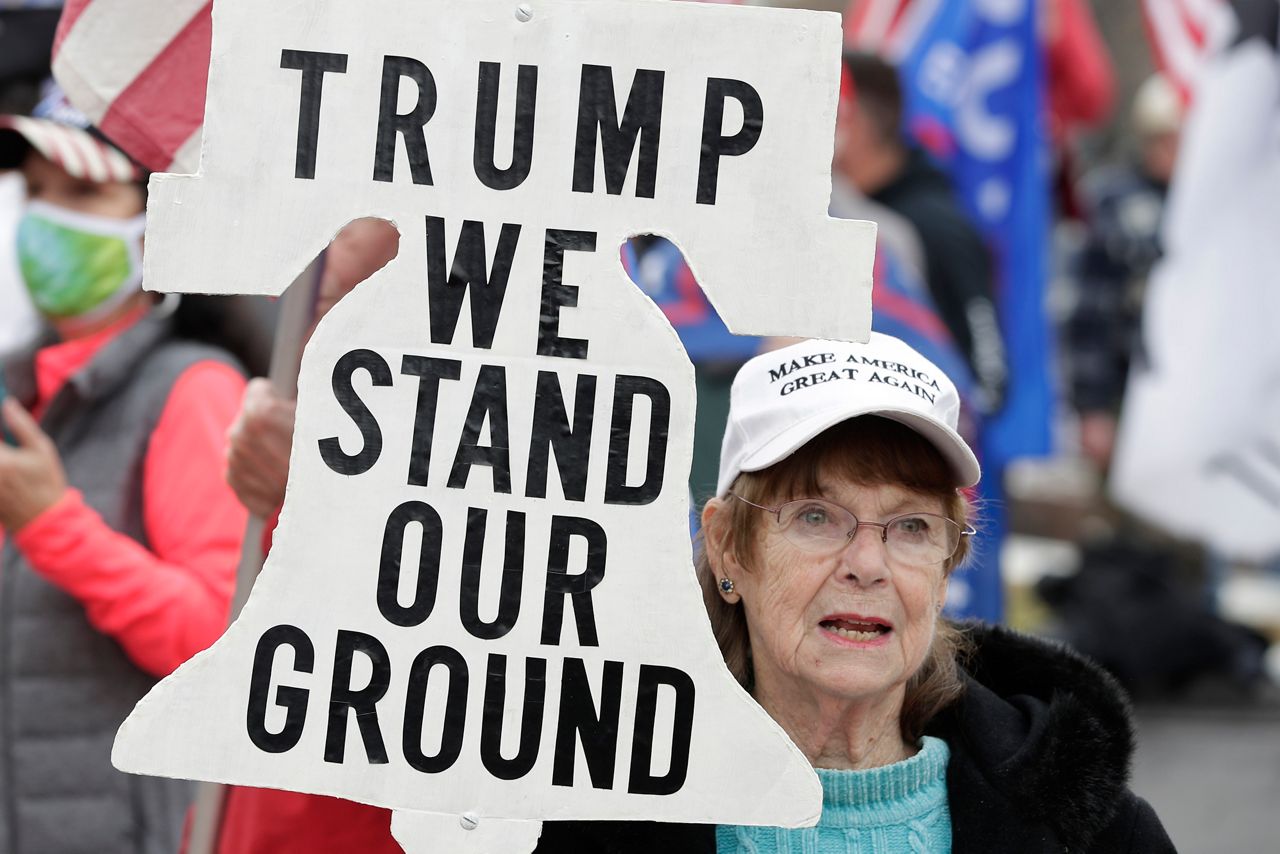
Elections officials denounced his claims, saying it's spreading misinformation, which the SPLC believes is what led to movements like Stop the Steal. As those ballots came pouring in on Nov. 8, along with in-person ballots, voters across the nation broke records.
It had the highest election turnout since 1900, according the United States Election Project. President Joe Biden won, but a majority of Trump's supporters believed the election was "stolen."
A Mammoth University poll in November showed 77% of Trump supporters believed the election was rigged, and 32% cited voter fraud. Although elections officials confirmed the election was the safest one to have been executed in the nation's history, Trump supporters believed he should have won.
Soon after, protests like Stop the Steal began surfacing across the nation, calling on Congress to overturn the election. Some of the protests got violent, including one in Columbus where punches were thrown.
Ultimately, the protests led up to the storming of the U.S. Capitol on Jan. 6, when thousands of people attempted to stop the certification of electoral votes. Many people broke into the building into the chambers, and Congress members had to be moved to a safe place until they were given the all clear.
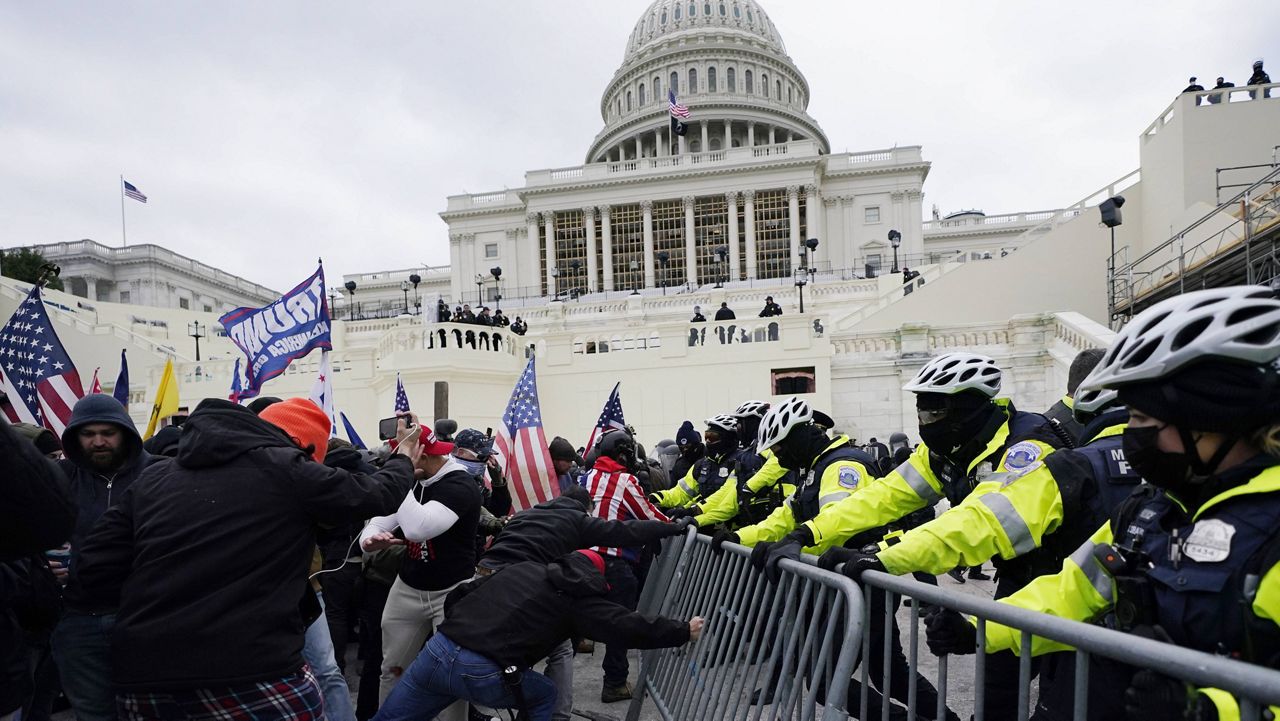
The FBI identified, arrested and charged many of the people who broke into the Capitol building. Some of them included Ohioans, including Jessica Watkins with the Oath Keepers. Another was Christine Priola, a former Cleveland Metropolitan School District employee.
The SPLC believes although Jan. 6 may have been the peak of pushback from anti-government groups, and despite the certification of the election, it's likely opposition to the Biden presidency and the false claims of a stolen election will continue.
The SPLC currently tracks groups throughout all 50 states. Click here to see which groups are in your state.
Of the 31 groups identified in Ohio, the team has found the locations for 21 of them. They include white nationalists groups, neo-Nazis, and anti-LGBTQ groups.
The report is part two out of three for the SPLC's "The Year of Hate and Extremism 2020" project.



